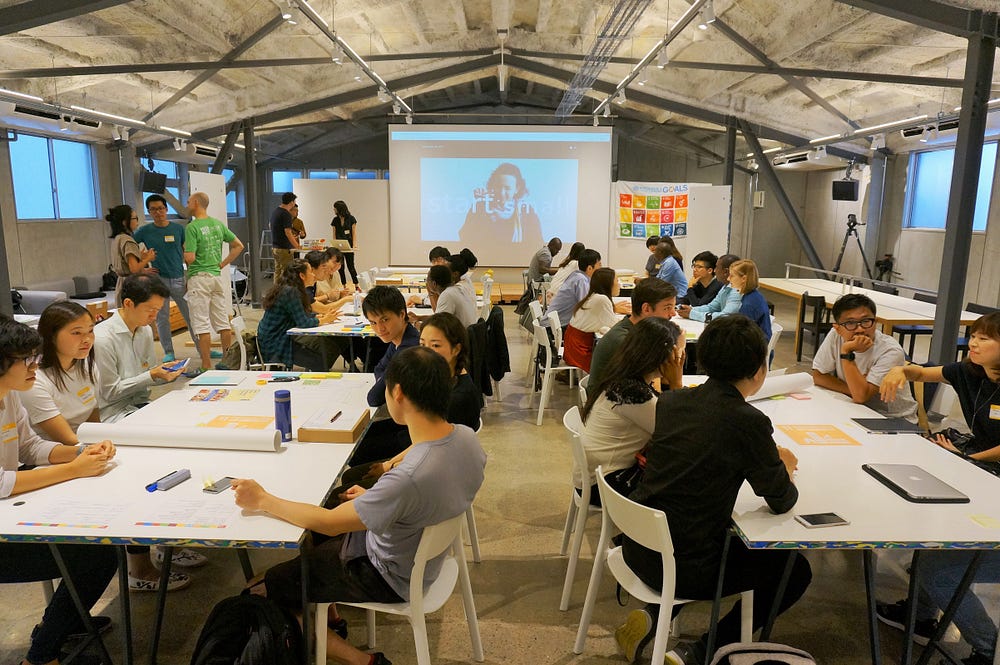
On 16th-17th September 2017, I had the honor of hosting the first edition of the #GlobalGoalsJam in Tokyo at 100BANCH. Global Goals Jam #Tokyo was a two-day event with short design sprints, using the methods from MediaLAB Amsterdam — we invited various professionals, designers, creators, and students from more than 10 countries to share and develop our ideas.
During the 2015 Social Good Summit, 193 world leaders committed to achieving 17 Sustainable Development Goals by the year 2030. As an initiative of the United Nations Development Program and MediaLAB Amsterdam, the Global Goals Jam began to design realistic, actionable interventions for these goals. Right now, there are more than 30 cities from different parts of the world supporting the initiatives from the local action.
I met the co-founders Marco Van Hout and Gijs Gootjes when they came to Tokyo, and I had the honor of receiving an official invitation to be a local host for this incredible global event. This article invites you to get a glimpse at the first edition of the Global Goals Jam #Tokyo.
It’s actually very rare in Tokyo to have an event entirely in English, with people from various backgrounds.
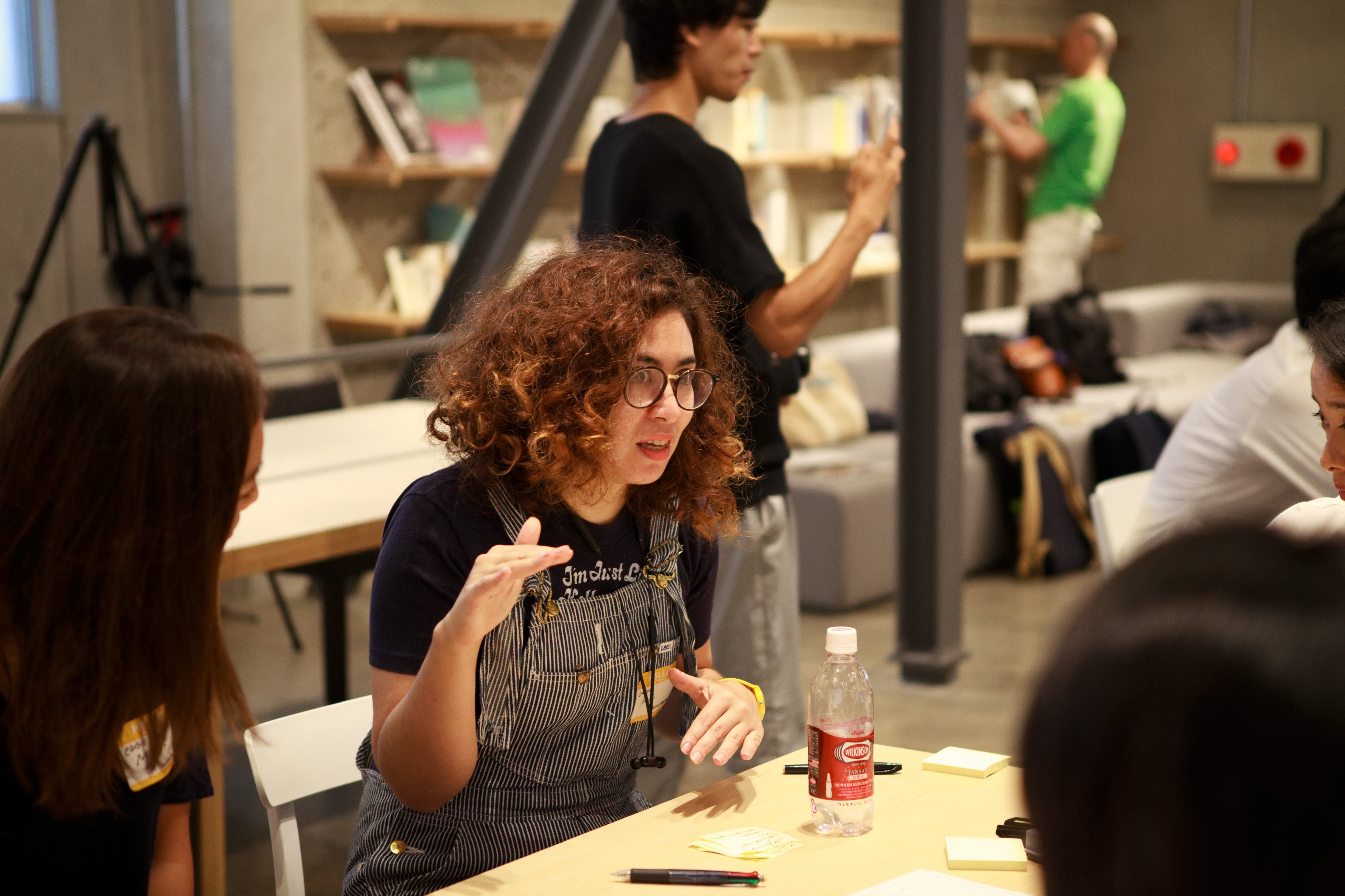
One thing I wanted to make happen was to make the event truly international and diverse. That means: it should welcome anyone regardless of their age, nationality, gender…. And it should be held in English.
Tokyo is a big, global metropolis and — well, if you know OTHER big metropolises like New York and London, you might be surprised to know that the proportion of foreigners in Tokyo is surprisingly low. Thus, everyday contact with people from different cultural backgrounds is still a rare experience for most Japanese, especially for those who don’t feel comfortable speaking in English. In Global Goals Jam #Tokyo, I was pleased to see people from Japan, Canada, the USA, Mozambique, Tanzania, Madagascar, Mauritius, etc. One of the participants from Mauritius told me that she has been looking for this kind of event in Tokyo for a long time.
It doesn’t matter how well you speak English. What matters is working with someone from a different cultural background and exchanging opinions in a common language towards the same goal. Believe me, I know it can sometimes be very awkward and frustrating. But it’s worth it.
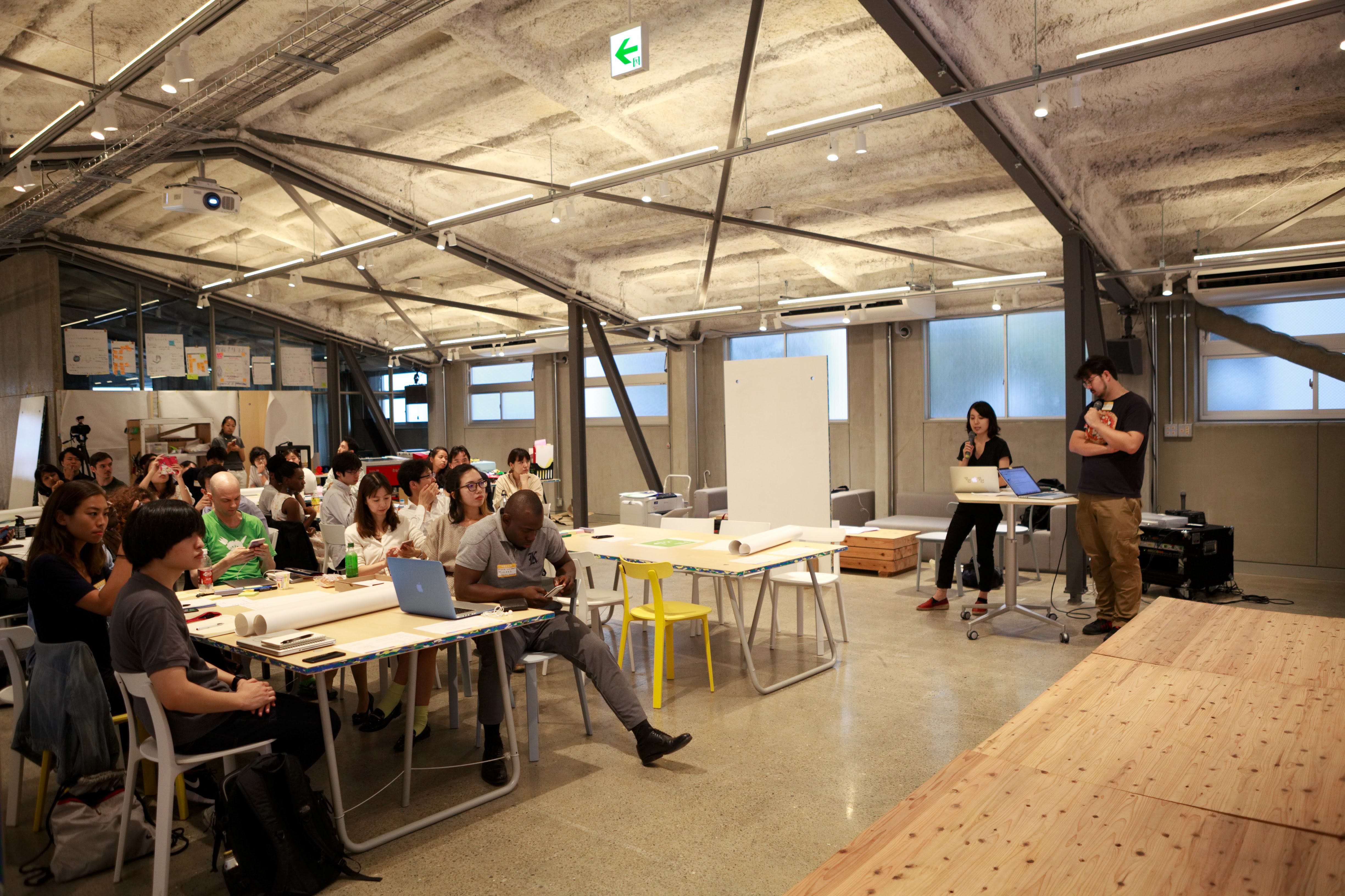
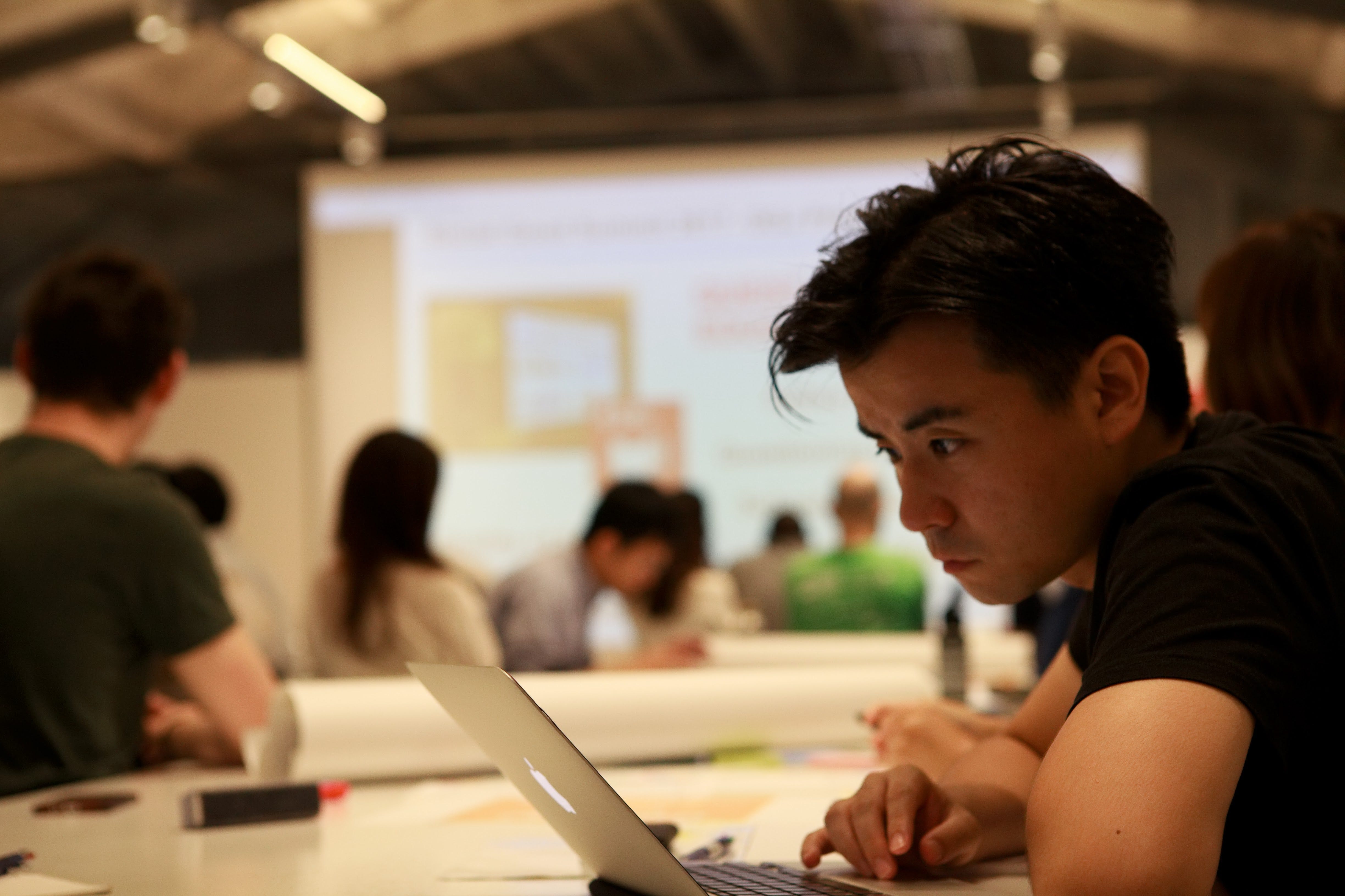
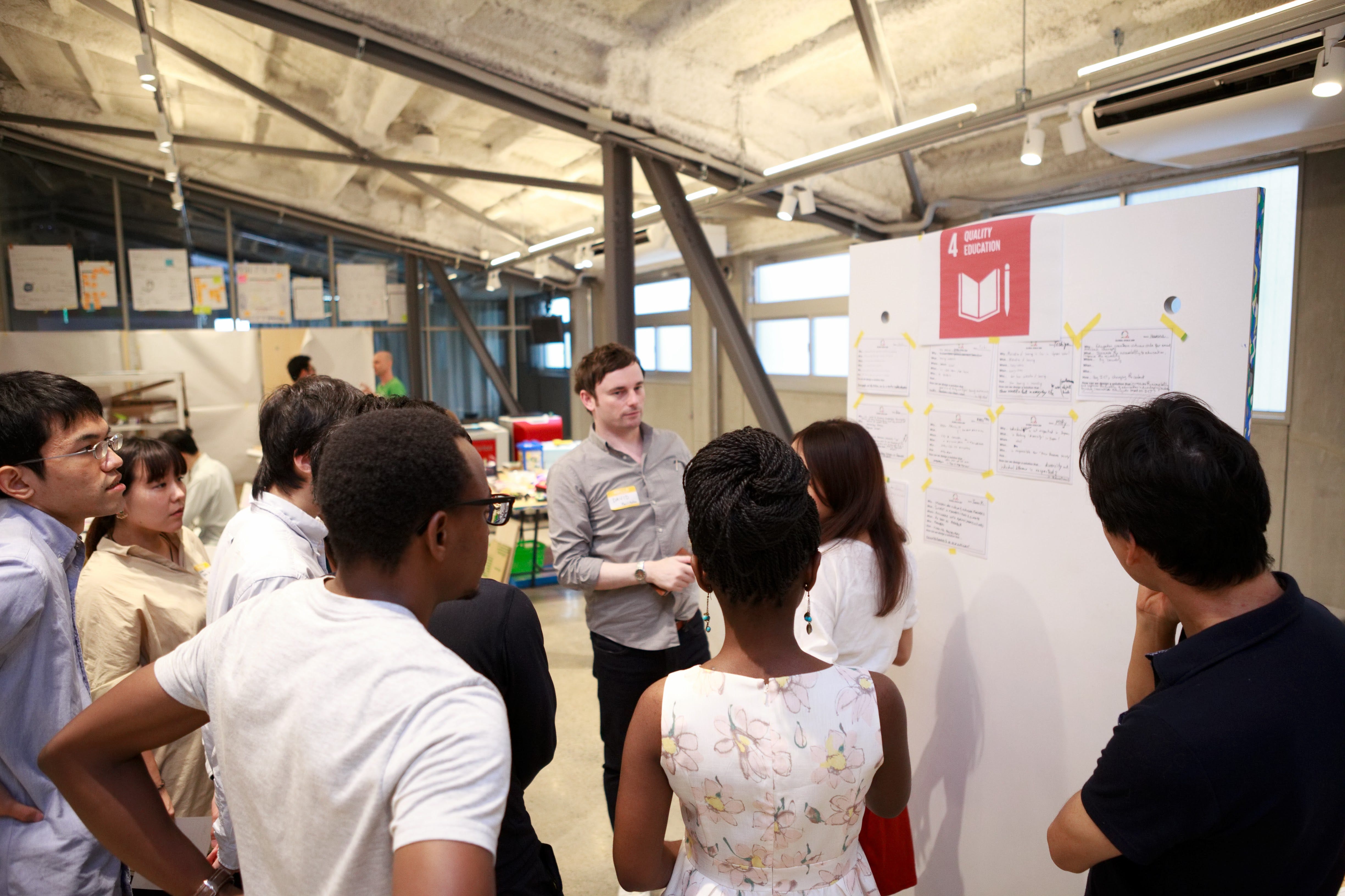 David Willoughby from Workers University joined the event as one of the facilitators
David Willoughby from Workers University joined the event as one of the facilitators
We learned the Design Sprints method from Amsterdam Media Lab.
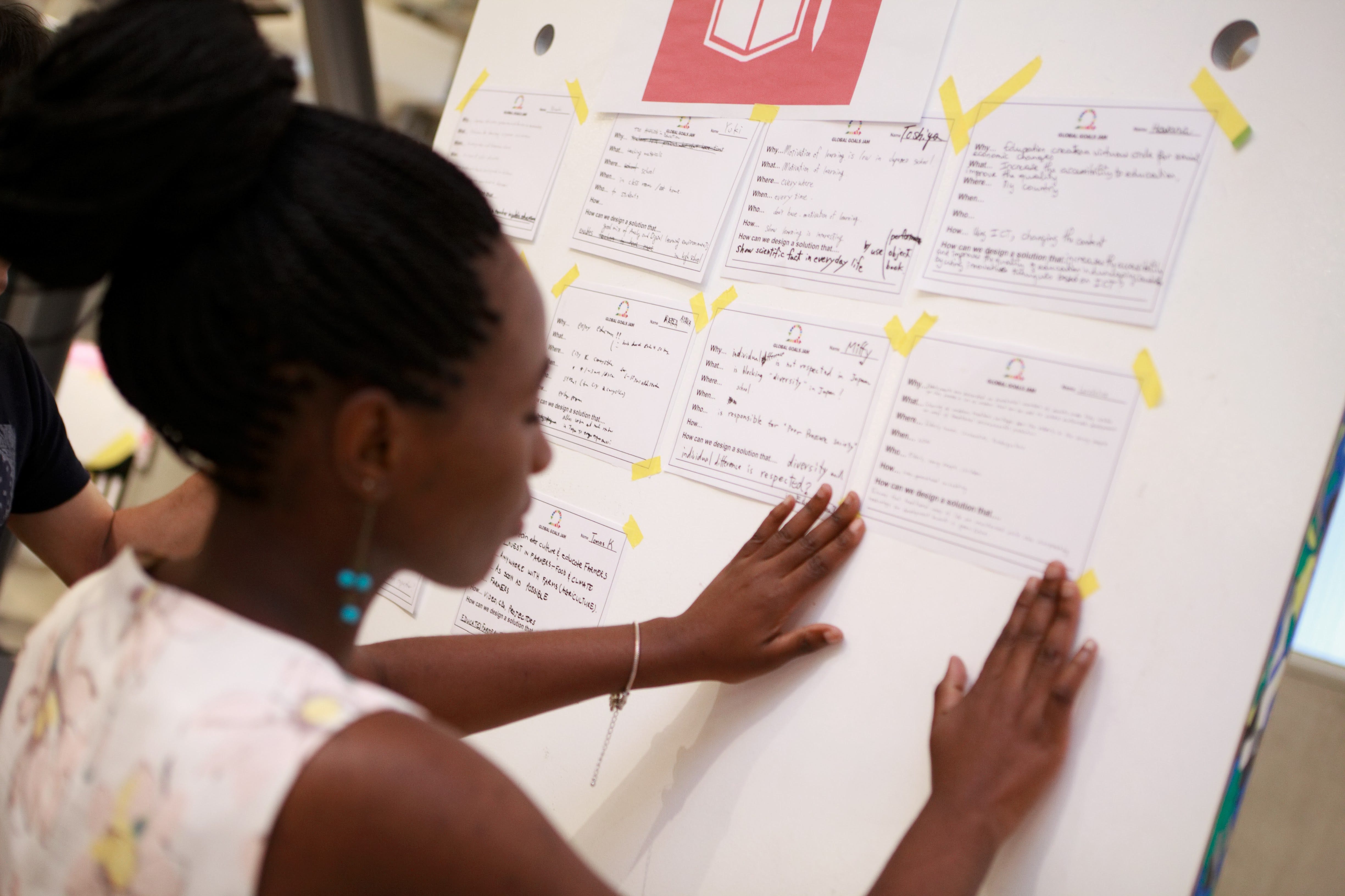 ***Sprint #1 Organize it, experience it / Sprint #2 Respond to it
***Sprint #1 Organize it, experience it / Sprint #2 Respond to it
*This was about identifying problems and organizing our ideas
Have you ever wondered what the heck a “design methodology” is? I know that it’s a fashionable thing to talk about “design” nowadays, but I always thought that many people didn’t really understand what it was, but just kinda wanted to talk bullshit about it.
That’s why it was very valuable to use the concrete methods established by Amsterdam Media Lab. While leaving out the very fine details that actually fit into the local contexts, Amsterdam Media Lab provides a common language of design methods for the design field (they call it a mission to fight “design waste”), which is open and accessible and where even the beginners can dive straight in.
Check out this toolkit — it has all the tools we can use, explaining each step that needs to be followed. It, of course, explains things like the process and for which purpose, how long it takes to complete a work, and so on.
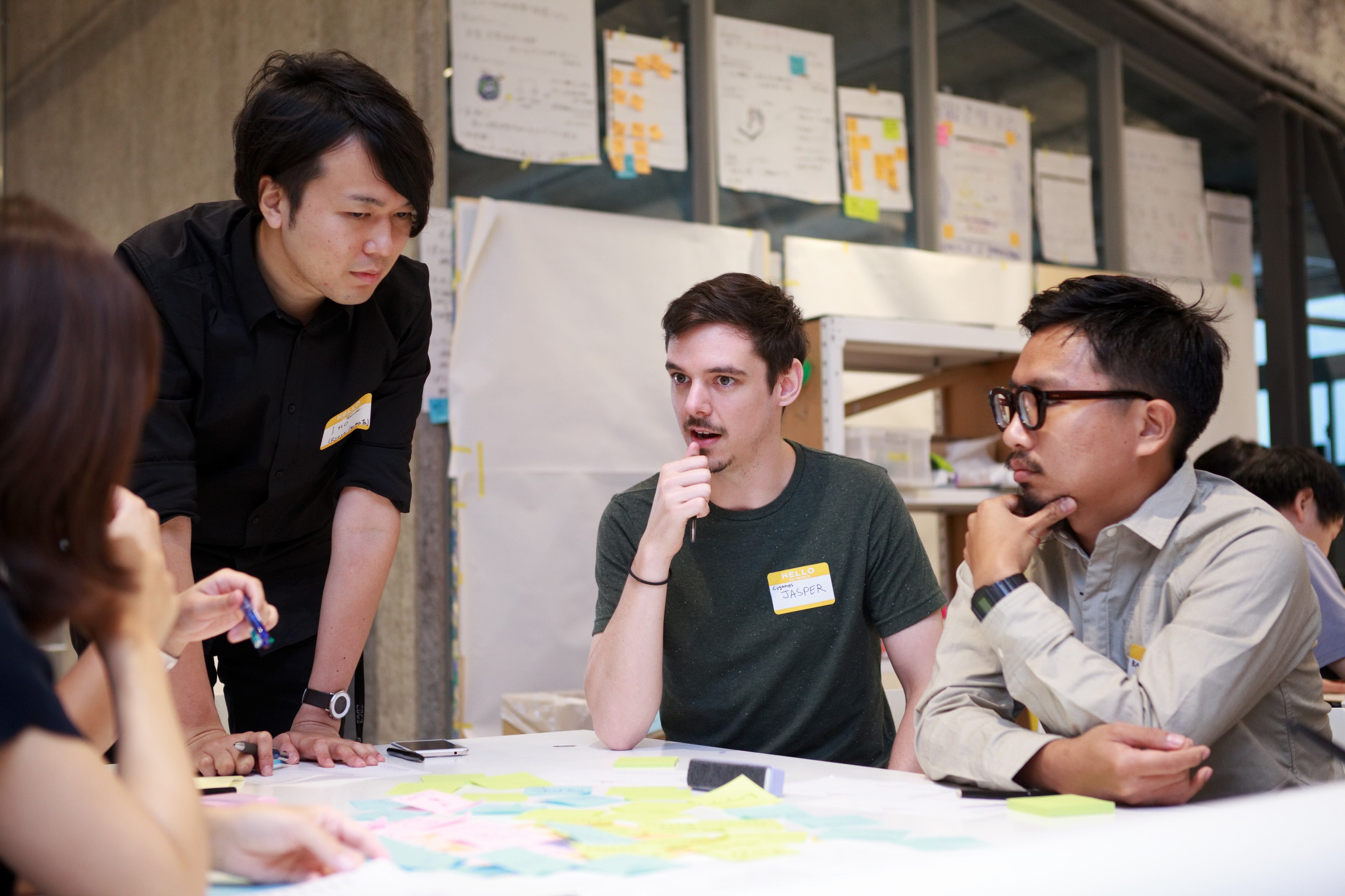 Day 2: Build it and test it
Day 2: Build it and test it
The second day was all about developing prototypes. We first made concept sketches to represent our ideas in order to get feedback from the other teams. Afterward, we tried to bring the team’s idea to the physical world for a demonstration. The proto-tools were provided by Fabcafe — a fabulous cafe in Tokyo where you can enjoy all the fabrication tools!
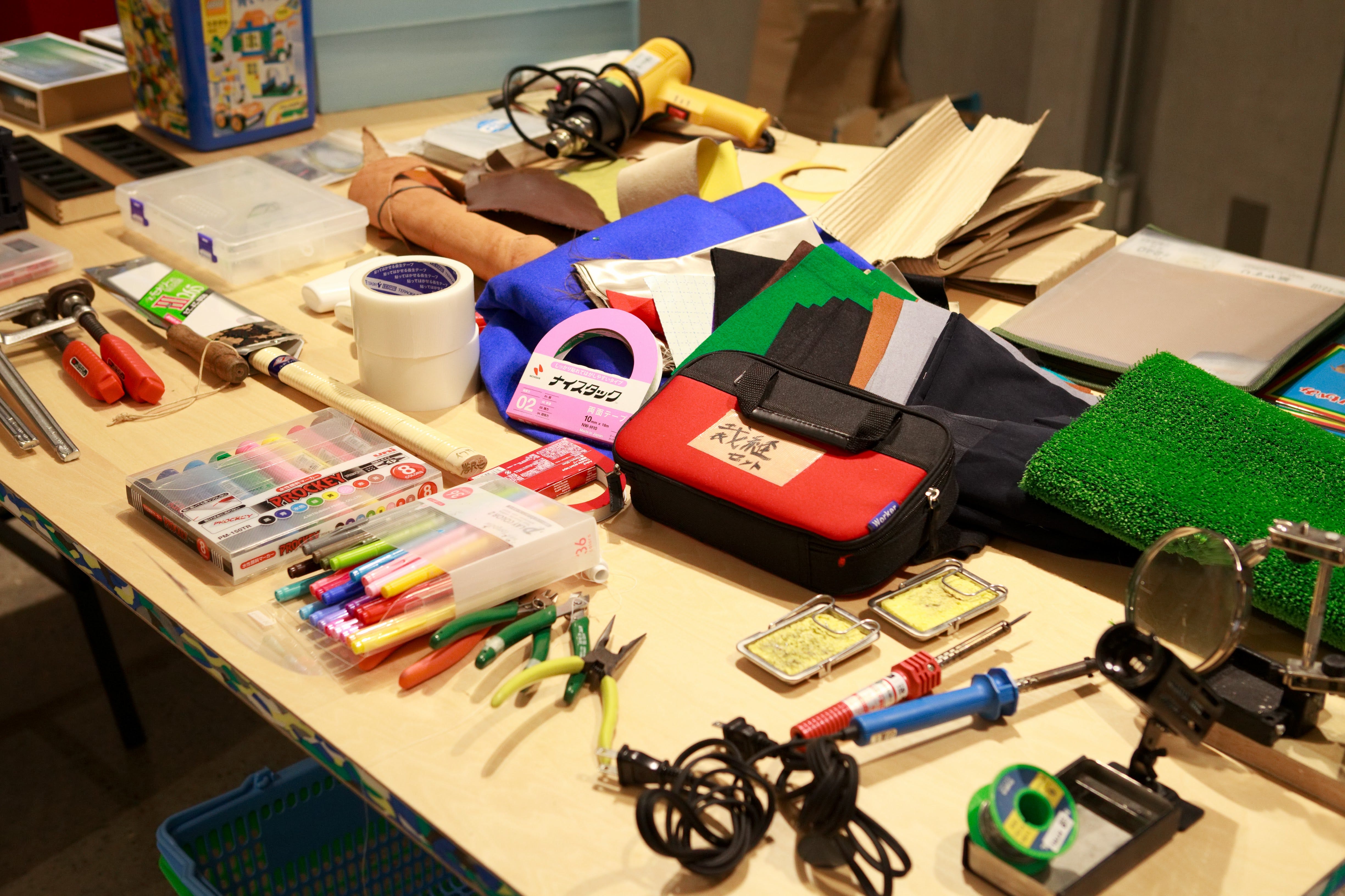
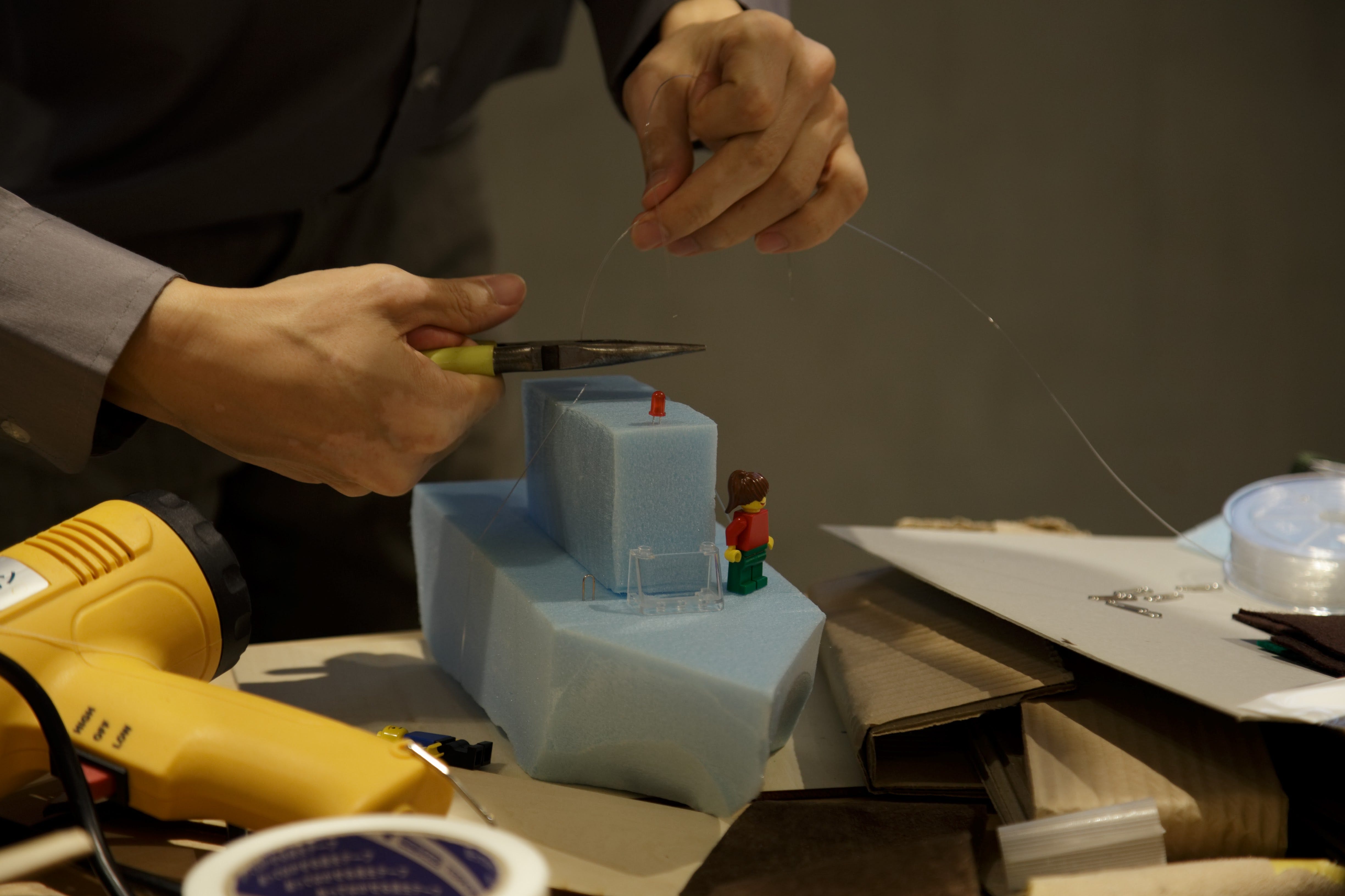
Think BIG, start SMALL, act FAST! Can’t you do the same, Tokyo?
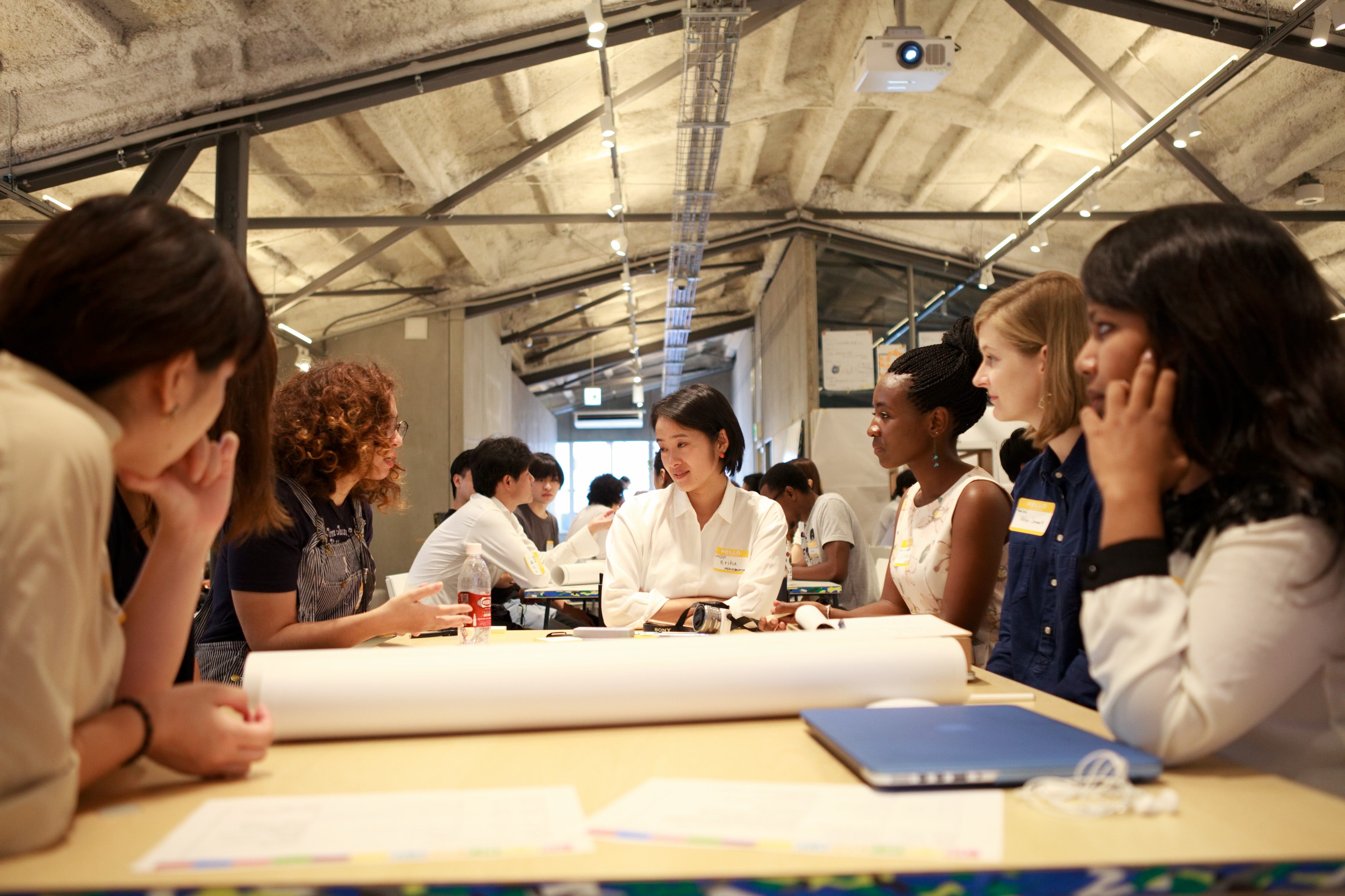
In the final presentations, we delivered various ideas, which were demonstrated as paper or cardboard prototypes, hand-made prototypes made with a laser cutter, video prototyping, and storyboards. Below are some of the prototypes we developed during the event.
Team 1. 「Midori no Heroes」: Goal # 4 Quality Education
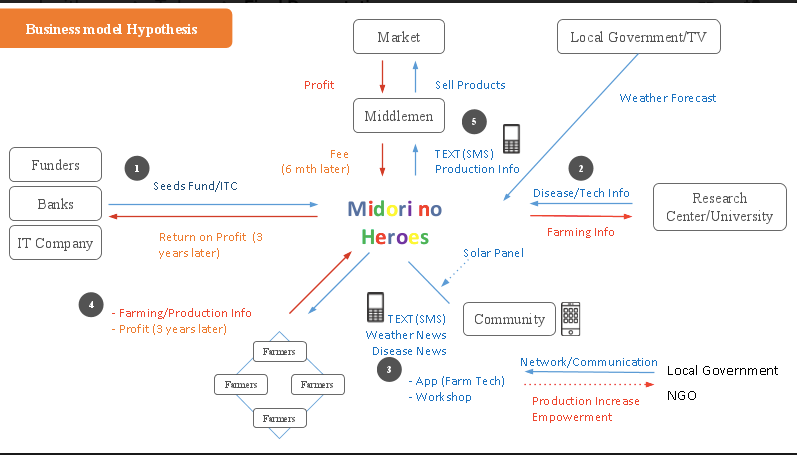 『Midori no Heroes』Storyboard
『Midori no Heroes』Storyboard
Challenge: How to provide vocational education to encourage small farmers in Africa by sending them useful information via feature phones and smartphone?
Their idea:“Midori no Heroes”, as a social entrepreneur, will partner with local research institutes, such as universities, central government and local government, to gather appropriate information for the farmers to farm better and more efficiently and then offer it to local small farmers. The team assumes that basic information such as weather forecasting can be useful since most of the farmers work without planning. The information will be delivered and implemented in two ways, one is via a feature phone for each farmer and the other is via a smartphone at a community center or community church. Midori no Heroes will have workshops at those central places where people regularly get together in order to learn how to use the smartphones and the information and how to implement it in their farming.
Team 2.「Plan B: Shared eco-bags」: Goal # 11 Sustainable Cities and Communities
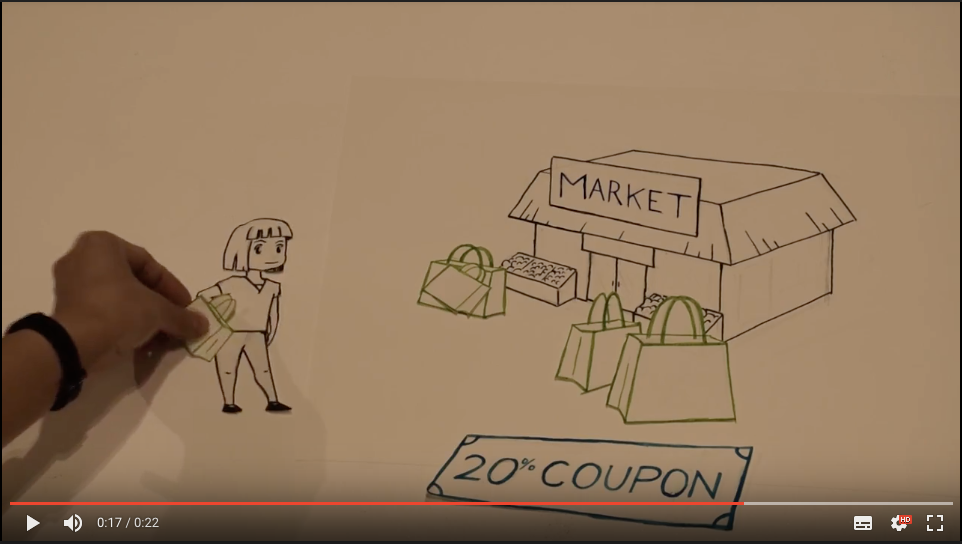 『Shared eco-bags』Video prototype
『Shared eco-bags』Video prototype
Challenge: 「Tackling the problem of shoppers consuming an excessive and unnecessary number of plastic bags at grocery stores and convenience stores in Tokyo.
Their idea:In Japan, 305 million plastic bags are used every year (300 bags/year for each person). Plastic bags take more than 1,000 years to decompose. Plan B is a reusable eco-bag that enables people to share / get benefit by using them.
Team 3. 「DiverCity」:Goal # 4 Quality Education
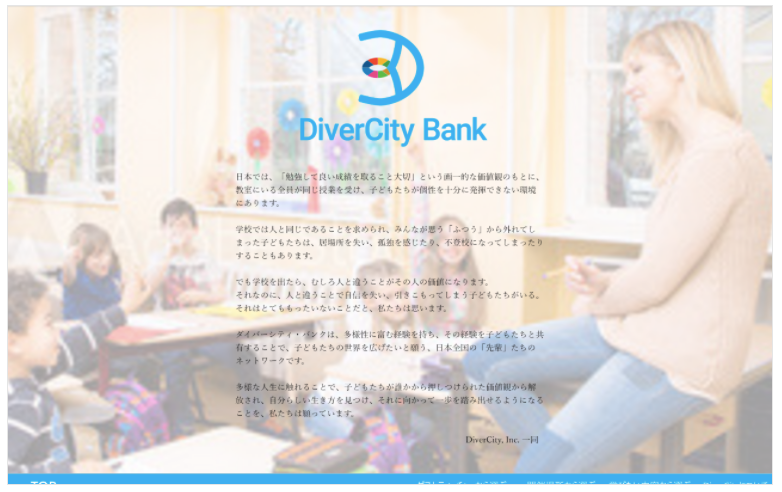 『DiverCity』website prototype: https://xd.adobe.com/view/7f7fb204-c645-4a24-99d8-d5487fe76871/
『DiverCity』website prototype: https://xd.adobe.com/view/7f7fb204-c645-4a24-99d8-d5487fe76871/
Challenge: How can we design a solution that promotes respect for diversity and individual differences in Japanese schools?
Their idea:DiverCity is a network of local people who have important life lessons they want to teach. Choosing a career, going your own way, learning from your mistakes, and finding your true self. Tayoubi means “diversity day” in Japanese. We encourage schools to set a specific day or time to think about diversity issues. They can make use of our “Diversity Bank” of local residents with interesting stories to tell. We also provide a “Diversity Pack” of lesson ideas and discussion topics for teachers introducing diversity education to their classrooms. Teachers and schools are free to decide how they implement Tayoubi, according to their available time and other resources.
Team 4. 「Sea You Soon」:Goal # 11 Sustainable Cities and Communities
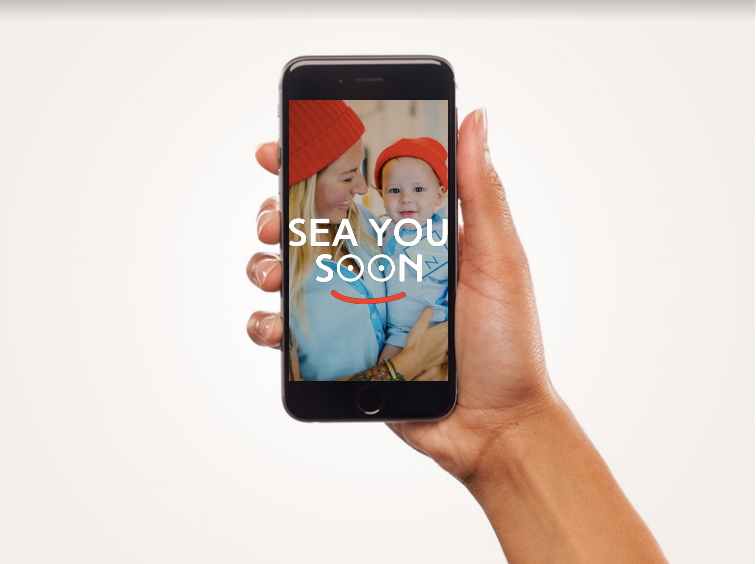 『SEA you soon』Mockup for an app service
『SEA you soon』Mockup for an app service
Challenge: How can we design a solution that turns Tokyo’s water resources into recreational community-building spaces while promoting awareness of the importance of water in our lives?
Their idea:We provide easy access to coastal journeys with experienced fishermen through an app called “SEA you soon’’. One can experience catching fish and eating and cooking them with the locals. The aim is to give people an attachment to the coastal environment for a more sustainable waterfront development.
Team 5. 「Smart Mirror Companion」:Goal # 3 Good Health and Well-Being
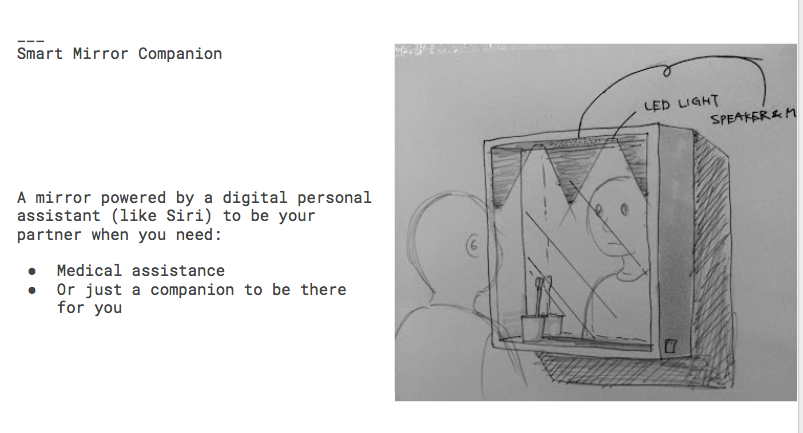 『Smart Mirror Companion』Video prototype
『Smart Mirror Companion』Video prototype
Challenge: Combating the world’s health problems by focusing on well-being and making sure everyone has the tools and resources to be healthy.
Their idea:A mirror powered by a digital personal assistant (like Siri) to be your partner when you need 1) medical assistance 2) or just a companion to be there for you.
Aren’t these ideas great and inspiring? I know that these are not PERFECT perfect — because they were done only in 2 days — but it is surely the beginning of something exciting. Marco, the co-founder of Global Goals Jam, told me that it’s all about “Think BIG, start SMALL, act FAST!”, and I think it could not be phrased any better.
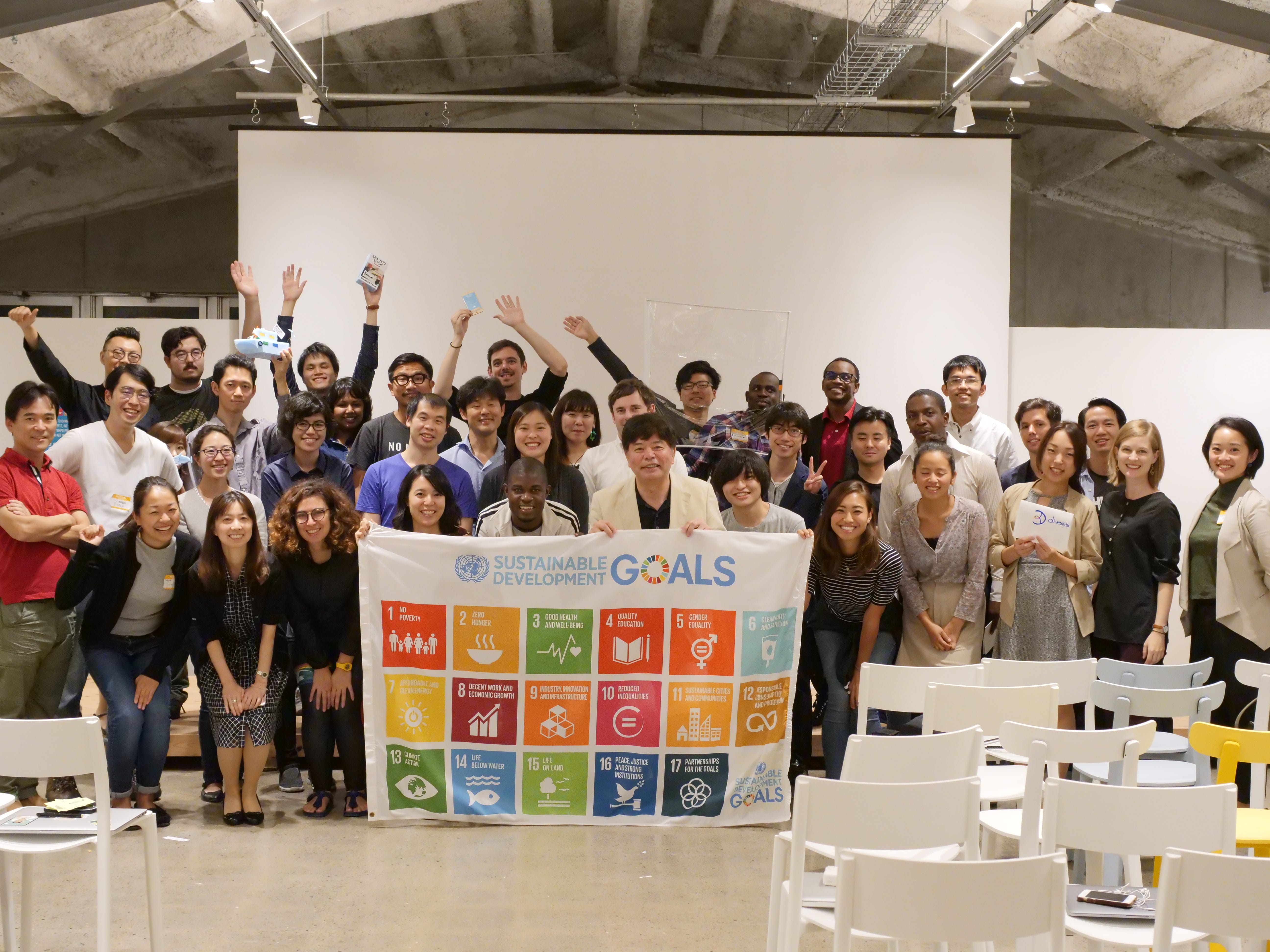
As a person who ALWAYS thinks of things in the context of cities and urbanism, I can’t help but think how valuable it would be to use this structure for the re-development of Tokyo. At the moment, everything seems to be “Think SMALL, start BIG, act SLOW!”. I’d love to apply the design sprint method we’ve learned during the Global Goals Jam to some of the critical urban problems we are facing, such as a shortage of childcare facilities, a lack of safe bicycle infrastructure, an unaffordable housing market, and energy shortages, just to name a few.
I hope you can also come and join us for this year’s Global Goals Jam 2018 #Tokyo!


